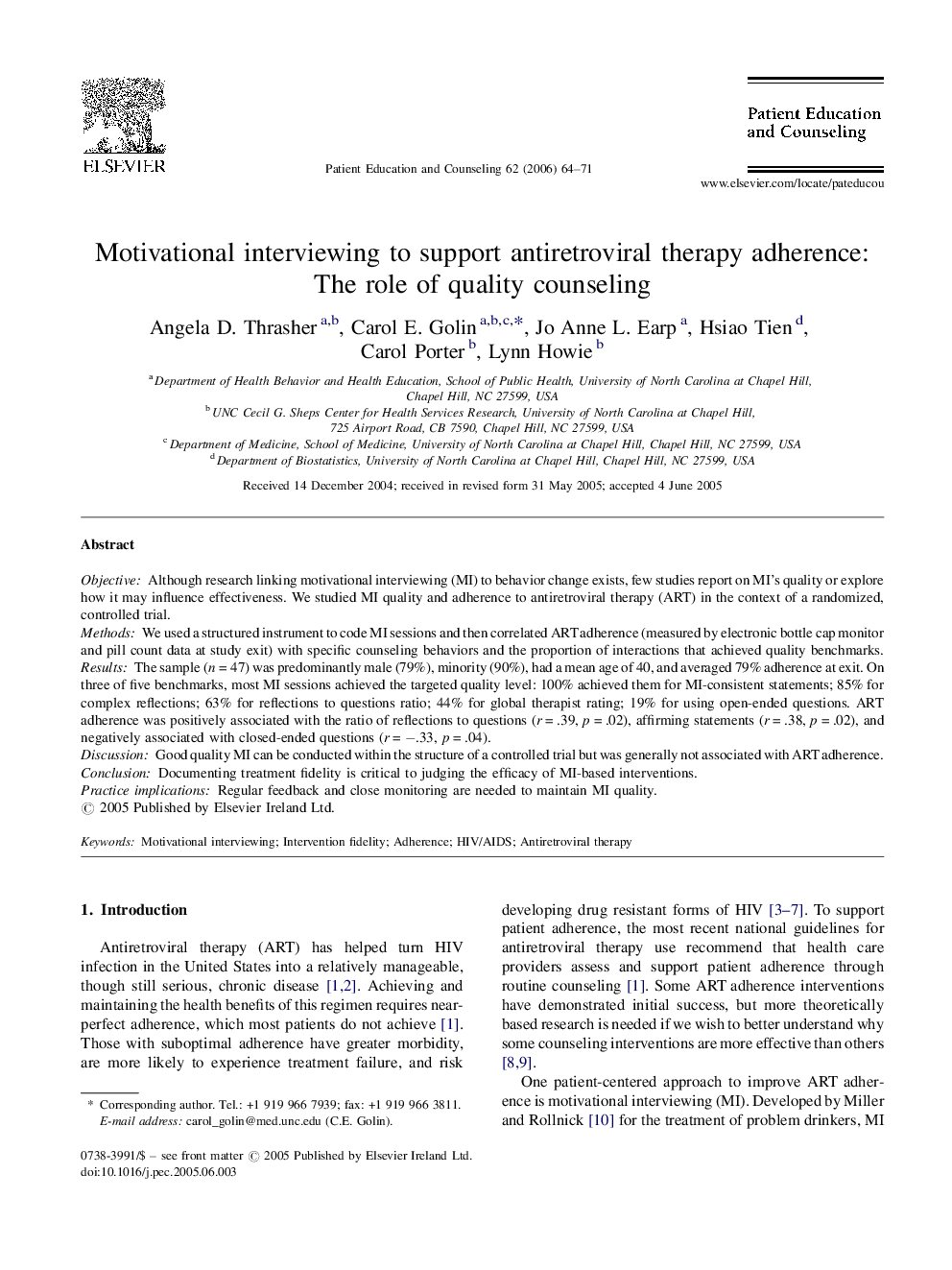| Article ID | Journal | Published Year | Pages | File Type |
|---|---|---|---|---|
| 3816108 | Patient Education and Counseling | 2006 | 8 Pages |
ObjectiveAlthough research linking motivational interviewing (MI) to behavior change exists, few studies report on MI's quality or explore how it may influence effectiveness. We studied MI quality and adherence to antiretroviral therapy (ART) in the context of a randomized, controlled trial.MethodsWe used a structured instrument to code MI sessions and then correlated ART adherence (measured by electronic bottle cap monitor and pill count data at study exit) with specific counseling behaviors and the proportion of interactions that achieved quality benchmarks.ResultsThe sample (n = 47) was predominantly male (79%), minority (90%), had a mean age of 40, and averaged 79% adherence at exit. On three of five benchmarks, most MI sessions achieved the targeted quality level: 100% achieved them for MI-consistent statements; 85% for complex reflections; 63% for reflections to questions ratio; 44% for global therapist rating; 19% for using open-ended questions. ART adherence was positively associated with the ratio of reflections to questions (r = .39, p = .02), affirming statements (r = .38, p = .02), and negatively associated with closed-ended questions (r = −.33, p = .04).DiscussionGood quality MI can be conducted within the structure of a controlled trial but was generally not associated with ART adherence.ConclusionDocumenting treatment fidelity is critical to judging the efficacy of MI-based interventions.Practice implicationsRegular feedback and close monitoring are needed to maintain MI quality.
